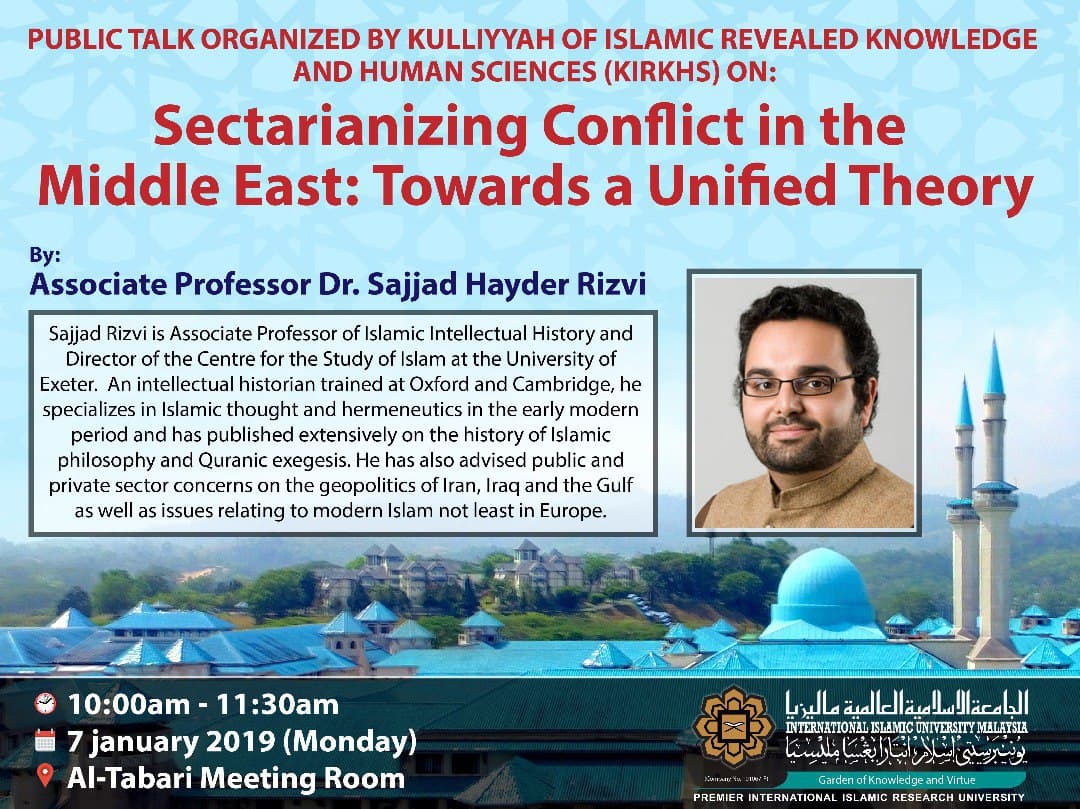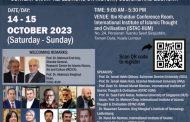Tensions, conflict, laterite, violence. Our current age seems to be afflicted by all of these, and increasingly these differences leading to discord are justified, motivated and promoted in the name of religious difference. Far too many analysts looking at the Middle East and beyond the point to Iraq, Syria, Yemen and much more as an explosion of age-old sectarian tensions between Sunni and Shii communities that characterizes the conflict. But sectarianism is not an explanation. Nor is religion a simple solution. Much like forms of ethnopolitical conflict in the current world, we can look at how Sectarianization is a shaping political process in the struggle for power, position, and scarce resources.
In this presentation, I will examine this process of Sectarianization in line with existing modern theories of political action and suggest how we can unite various accounts within a unified theory that does not reduce the difference to conflict, nor seek a futile solution in religious and ethnic analysis.
Speaker
Sajjad Hayder Rizvi
Date
7 January 2018
10 – 12 pm
Venue
International Islamic University Malaysia (IIUM)
Al-Tabari Meeting Room
Organizers
Asia West East Centre (Asia we)

Sajjad Rizvi is Associate Professor of Islamic Intellectual History and Director of the Centre for the Study of Islam at the University of Exeter. An intellectual historian trained at Oxford and Cambridge, he specializes in Islamic thought and hermeneutics in the early modern period and has published extensively on the history of Islamic philosophy and Quranic exegesis. He has also advised public and private sector concerns on the geo
politics of Iran, Iraq and the Gulf as well as issues relating to modern Islam not least in Europe.









